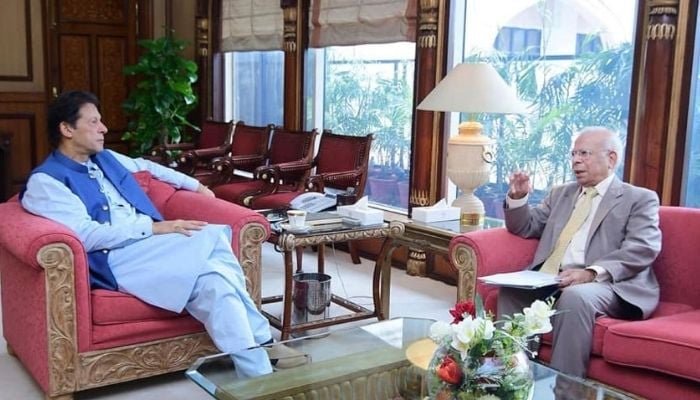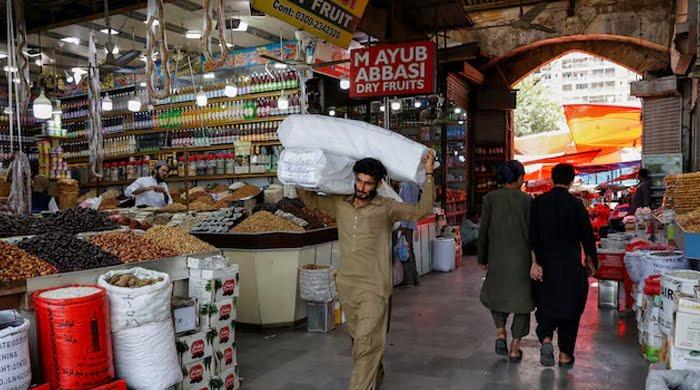Hurdles on the road to reforms
There is a widely held misconception that technocrats are best suited to bring about reforms
February 04, 2022

An attempt was made by the National Commission for Government Reforms (NCGR) to present a comprehensive package that proposed a strong district government system with specific focus on education, health and police. But the report could not be implemented due to the change in government. Subsequent governments did realise the need but remained preoccupied with other pressing matters.
This time (2018-21), the focus was only on the federal government as the provincial governments plainly told us that after the 18th Amendment the federal government (although all the four provincial chief secretaries were members of the task forces that formulated the reforms) has no business in imposing the reforms, and they would design and deliver these themselves based on their peculiar conditions rather than follow the recommendations of the federal government (that has not happened so far).
The recent decisions by the Supreme Court give some glimmer of hope that a strong local government system would emerge in the coming years – although one of the most desirable models enacted by the Punjab Assembly in 2019 has been diluted by the recent ordinance of 2021. It is hoped that legislators will insist on a reversion to the 2019 law and reject the 2021 ordinance under consideration.
The concept of the All-Pakistan Services under the constitution under which members of the Pakistan Administrative services (PAS) and the Police Service of Pakistan (PSP) were required to serve both at the federal and provincial levels have been challenged by provincial civil servants in the court. They have held public rallies and demanded that the chief secretaries and the IG police should be appointed by the provincial governments and not the federal government.
Quite surprisingly, this issue has been raised when one of their demands to increase their quota in Grades 17-22 positions in the provincial governments was increased under the reform of cadre rules by reallocation of 650 posts from the PAS to the provincial civil services. The provision of inducting PCS and PMS officers into the PAS through a competitive examination conducted by the Federal Public Service Commission was also revived. They could therefore occupy higher positions in the federal government and could reach the top. This tension has not allowed much headway in the administrative reforms at the provincial level where they are badly needed to reduce the size and reallocate staff to tehsils, municipal bodies and districts .
Political dynamic and incentives: There is a widely held misconception that technocrats are best suited to bring about reforms. Technocrats can carry out background technical work, hold consultations with stakeholders and listen to their views and suggestions and incorporate them in the design – but their acceptance and execution has to be politically driven as they entail difficult choices and trade-offs. These choices cannot be made by unelected technocrats as it is only the elected representatives who have to face the consequences before the electorate. The crucial stages after the design are debating and discussing the proposals in the party and the cabinet, making compromises.
Reaching consensus, messaging and carrying out the people along can only be tackled by the elected representatives. There is a possibility that some of the proposals prepared by the technocrats may be diluted or rejected outright. To have a long-lasting impact these have to be presented before the legislature for their consideration and approval on a cross-party basis. This process of negotiation, persuasion, give and take can only move forward if there is no serious confrontation or adversarial relations between the party in power and the opposition.
The recent uproar on the SBP governance and autonomy bill could have been avoided if the two parties had sat down and dispassionately and coolly come to a mutual understanding allaying some of the genuine misapprehensions. This breakdown in communication has done a lot of damage and made the bill highly controversial and subject to reversal in the future. Under these circumstances, reforms are not taken seriously.
Assuming that in a more sobering environment the law is enacted after dialogue between the movers and the opposition, there may be further deviations from the original script and the force multiplier of the reforms may not be that powerful. This cannot be criticised as this is the legitimate prerogative of the legislators. The next hurdle is to face the resistance of those who believe in the status quo ante as their interests are threatened.
If an SOE that has accumulated billions of rupees in losses can be leased out to a private operator who guarantees decent returns to the government, provided all the liabilities are taken off the books and the existing staff on the payroll is given severance packages, what do you think the reaction to this move would be? The workers would come out on the streets, approach the media and the opposition parties for their support. It is now the political calculus of the leader and the party in power whether to yield to these pressure tactics, roll back or reverse the actions taken or stick to them despite this resistance or modify them.
This situation does provoke some members of the coalition government to turn their backs and argue that ‘we are conceding political space to our opponents for nothing and should postpone the transaction’. In case the prime minister and the cabinet persist with the tough decision and are not persuaded to reverse it, the workers would file a suit in the court and obtain a stay order that has no time limit. The SOE would continue to incur losses while the workers get their pays, perks and privileges unhindered. What would be the reaction of prospective investors in this and future such transactions? They would quit in the belief that the same cycle would repeat itself and they would desist from showing any interest as the country loses credibility and billions in financial losses.
Pakistan’s history is replete with such instances – the most glaring being that of Pakistan Steel Mills which has been shut down since 2015; the country is importing steel and scrap, incurring scarce foreign exchange with supply disruption affecting our downstream industry whose input costs have gone up while the government is financing the salaries, pensions and other expenses out of taxpayers’ money.
In many cases, the judiciary itself has initiated suo-motu action keeping the reforms in abeyance for a long time. What is more distressing is the shifting postures of the political parties. When party X in power wants to go ahead with such reforms there is agitation and stiff resistance by party Y but when the same party comes to power the roles are reversed. If both are convinced that this is good for the larger interest of the country then point-scoring and gaining popularity among a small group have heavy costs for the economy .
The above behavourial pattern that is displayed by all political parties has a rationale that is quite understandable and has to do with the present first-past-the-post plurality voting system under which the candidate who wins the most votes in each constituency is elected.
To be continued
The writer is the author of 'Governing the ungovernable'.
Originally published in The News











